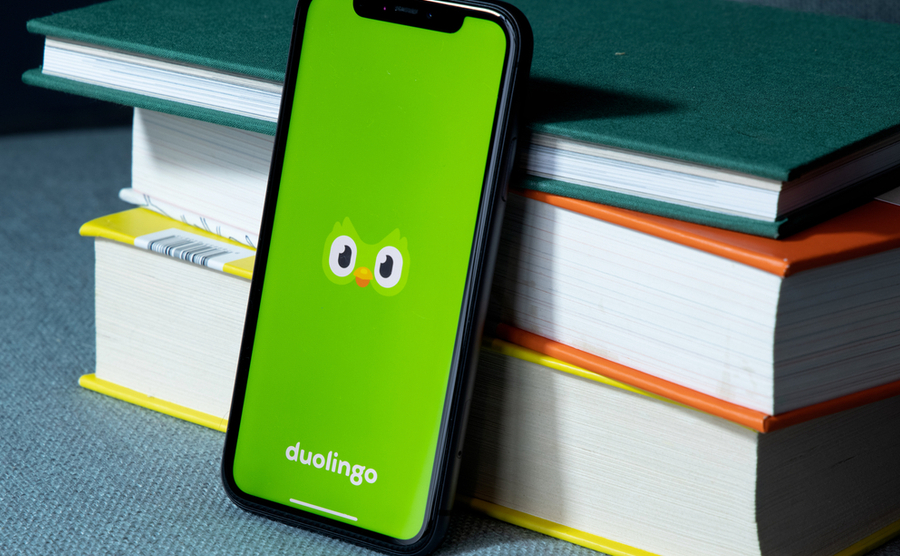Seasoned expats love sharing stories about language faux pas – either their own or someone else’s. Announcing you’re ‘plein’ after a long lunch in France is a common one – you’ve just told your fellow diners you’re pregnant rather than full!
While Brits all over Spain are known to misuse the word ‘preservativo’ (look it up yourself) or innocently tell Spanish friends how ‘excitado’ they are about something trivial – did they really mean excited in an erotic way, not likely…
Brits’ reputation for being slack at learning a new lingo might make for funny anecdotes but it leaves us a disadvantage when we travel and move abroad. Right from the moment we start our property search, leading to the purchase process, to when we spend long periods in our lovely new home or move there and attempt to integrate. Being able to understand just a bit of the local tongue, written or spoken, makes life easier and more fulfilling and does wonders for our reception by the local population.

Sadly, there is little sign of things improving at grass roots level. Increasingly, modern languages are out of favour with GCSE students, with the take up in schools behind Government targets compared to other subjects, according to the British Council’s annual Language Trends 2022 report. In fact, in a bid to revive interest the Government has overhauled the way GCSE languages are taught and a new syllabus kicks in nationwide in 2024. The effects of Covid haven’t helped, of course, causing many schools to lose their connection with European partners.
On the flip side, in today’s media saturated digital world it has never been easier for anyone of any age to start learning a new language – and plenty of older people are taking advantage of this. So, if you’re in the market for an overseas home in 2023, really there is no excuse for not trying to learn some of the local lingo and there’s no time like now to start! Here are some easy ways to get cracking.

Apps like Duolingo can be really useful when trying to learn a new language
Use an app
We live in a world of apps – what isn’t there one for? Just how useful some are is questionable, but for language learners they’re like gold dust. Having one on your phone and being able to take it with you everywhere allows you to really get stuck into a new language. Get a spare minute on the train, having a coffee or waiting to pick up the kids, then open up the app and learn some new phrases or vocab. Back at home, you can have the same app synced on your tablet or laptop, letting you continue with your course during nights on the sofa.
There are lots of language apps to choose from, each with its own version and style of instruction and learning. Most use games to make learning fun, some involve using the phone’s camera. Regularly voted the best for popular languages like French, Spanish, Portuguese, Greek and Italian, are Rosetta Stone, Babbel, Busuu, Memrise and Duolingo. Pricing structures vary – some offer a basic level of their app for free and require users to subscribe to their pro or premium service, while others only offer subscriptions, typically for a fixed number of months.

Language lessons are often run by local councils
One-on-one classes
If you’ve got the budget and time, find a private tutor who is a native speaker of your chosen language and sign up to some classes. You can do this in the UK – or wherever home currently is – before you even purchase your new home abroad. If moving permanently, ask around locally for a teacher and seek recommendations from other expats. Learning a new language from a native speaker gives you the experience you won’t get from self-study alone. As well as teaching you the classroom basics, a good tutor will be able to help your pronunciation and give you an understanding of your language on a conversational level.

Flash cards can be really useful in learning new languages
Keep a vocab book
Might seem like going back to school, but over time the benefits of noting down anything you hear and don’t understand are massive. This is useful if you don’t feel comfortable asking someone to explain a word in the moment – jot it down and check it later. Make a habit of referring to your book to refresh your memory – flicking through it a year or two down the line will feel very satisfying!
Immerse yourself in local media!
Resist tuning into Netflix or English-speaking TV all the time! You don’t even have to do it every night but try setting aside one or two days in the week when you promise yourself to watch only local TV. Watching shows with subtitles can be useful too – listening to as much as you can and making a note of any new vocabulary is a great way to tune into the local dialect. Same goes for radio, which is especially useful if you’re in the car a lot.

Organise a meet-up with other expats to practice together
Get amongst it
Don’t be afraid to mix with locals and accept invitations to social events, especially those with non-English speakers where you’ll be the only expat or one of few! Take yourself out of your comfort zones and expose yourself enough to a language and you’ll start absorbing it without even realising. Organising get-togethers or meals out with other expats, who can be from a range of countries, where only the local lingo can be spoken can also be fun and fruitful.

